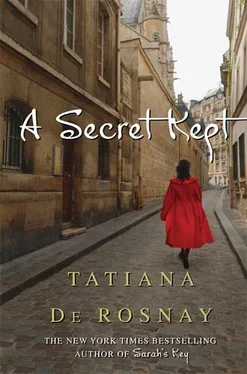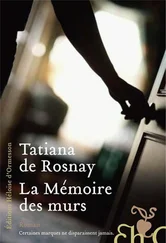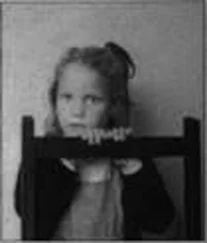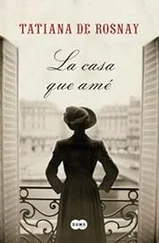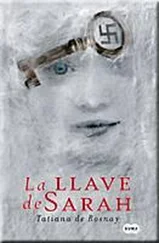Mélanie opens the door to us. Her face is pale and sad. Her eyes are tearful. Did she love Blanche? I wonder. Will she miss her? We hardly saw our grandmother anymore. What did she mean to Mélanie? But Blanche was the only grandmother we had, I realize. Clarisse’s parents died when she was young. Our grandfather passed away years ago, when we were teenagers. Blanche is our last link to our childhood, and that is why my sister is crying.
My father is already in bed. I am surprised to hear this. I glance at my watch. Seven thirty. Mélanie says in a low voice that our father is very tired. Is there reproach in her voice, or am I imagining things? I ask her what is wrong with him, but she brushes me away as Régine appears, overly made up and glum. She hugs us in a distracted, offhand fashion, offers drinks and crackers. I explain that Arno is at his boarding school, that he’ll be back for the funeral.
“Don’t talk to me about the funeral,” Régine groans, pouring herself a hefty glass of whiskey with an unsteady hand. “I don’t want to deal with all this. I never got on with Blanche. She never liked me, and I don’t see why I should have anything to do with her funeral, for God’s sake.”
Joséphine comes in, looking rather more graceful than usual. She kisses us and sits down next to her mother.
“I just spoke to Solange,” says Mélanie, her voice firm. “She will be making all the arrangements for the funeral. You don’t have to worry, Régine.”
“Well, if Solange takes over, then there is nothing any of us will need to do. Your poor father either. He’s far too tired to face Solange right now. Blanche and Solange were always rude to me, looking me up and down because I didn’t have the right figure, because my parents weren’t as rich.” Régine goes on, pouring more whiskey and knocking it back viciously. “Always made me feel like I wasn’t good enough for François, that I wasn’t proper enough to be a Rey. Ghastly Blanche and her even ghastlier daughter.”
Lucas and Margaux exchange surprised glances. Joséphine exhales noisily. It occurs to me that Régine is more than tipsy. Only Mélanie keeps her eyes to the ground.
“No one is ever good enough to be a Rey,” slobbers Régine, lipstick smudging her teeth. “They made bloody sure we all knew that. Even if you come from a high-quality family with fine money. Even if you come from a family of decent people. Never good enough to be a fucking Rey.”
She starts to bawl, her empty glass clattering to the table. Joséphine rolls her eyes and gently but firmly pulls her mother up. I can tell by her routine gestures that this happens often. She hauls the weeping Régine away.
Mélanie and I look at each other. I think of what lies ahead. The candlelit bedroom on the avenue Henri-Martin where Blanche’s body awaits me.
But it is not the sight of my dead grandmother that frightens me tonight. She was practically dead when I saw her two days ago, apart from the dreadful, glaring eyes.
What frightens me is having to go back there. Back to the place where my mother met her death.

Mélanie takes my children back home. She has already been to see Blanche’s body with Solange and our father earlier today. I turn up alone at my grandmother’s house. It is late. Nearly eleven. I am worn-out. But I know Solange is waiting for me. The only son. It is my duty to be there.
The grand salon is surprisingly full of elegant strangers sipping champagne. Friends of Solange, I suppose. Gaspard, dressed in an austere gray suit, explains that yes, they are indeed her friends, and they’ve come to comfort Solange tonight. He adds in a low voice that he needs to talk to me about something important. Can I wait for him before I leave? I say I will.
I always thought my aunt was a lonely, reclusive person, but when I see tonight’s turnout, I guess I am wrong. But what do I know about my aunt? Nothing. She never got on with her older brother. She never married. She led her own life, and we saw little of her after our mother’s death and the Noirmoutier summers. She did, however, look after Blanche a great deal, especially after Robert-her father, my grandfather-passed away.
Solange comes toward me as I stand in the entrance. She is wearing a pearl necklace and an ornate embroidered dress that seems a trifle glamorous for the occasion. She seizes my hand. Her face is swollen, her eyes fatigued. I wonder what her life will be like now, without her mother to look after, the hiring of nurses, that enormous apartment to run. She takes me to Blanche’s room, and I can only follow her. There are people standing around the bed, praying. I don’t know them. A candle is lit. I gaze at the silent form on the bed. But the only thing I imagine is her terrible eyes glaring out at me. I look away.
My aunt leads me this time to the empty petit salon. The chatter and low voices of her guests can hardly be heard here. She closes the door. Her face, which reminds me so much of my father’s, with a larger chin, seems rigid all of a sudden, less forthcoming. I am aware that this may not be a pleasant moment. Being in this room is already uncomfortable. I keep glancing down at the carpet. This is where my mother’s body fell. Right here, by my feet.
“How is François tonight?” she asks, toying with the pearl necklace.
“I didn’t see him. He was asleep.”
She nods. “I hear he is being brave.”
“About Blanche?” I ask.
A small stillness. The pearls click.
“No. About his cancer.”
I remain rooted to the spot. Cancer. Of course. Cancer. My father has cancer. For how long? Cancer of what? How bad is it? No one in this family ever talks.
Silence is preferred. Slow, chloroformed silence. Stealthy silence, covering everything up like a deadly, smothering avalanche.
I wonder if she knows. If she can guess, just by watching my face, that this is the first time I am told about my father’s illness. The first time it has been named.
“Yes,” I say, unsmiling. “You’re right. He’s being brave.”
“I must be getting back to my guests,” she says finally. “Goodbye, Antoine. Thank you for coming.”
She leaves, her back stiff. As I walk to the entrance, Gaspard comes out of the grand salon carrying a tray. I make a sign to him, indicating that I will be waiting for him downstairs. I go down and light up a cigarette, just outside the building.
Gaspard turns up a few minutes later. He seems composed, a little weary. He gets straight to the point.
“Monsieur Antoine, I need to tell you something.”
He clears his throat. He looks calmer. Not like the other day in his room.
“Your grandmother is dead now. I was afraid of her-so afraid, you understand? Now she cannot scare me anymore.” He pauses, pulls on his tie. I decide not to rush him. “A couple of weeks after your mother died, a woman came here to see Madame. I opened the door to her. An American lady. When your grandmother saw her, she lost control. She shouted at the lady and told her to leave right away. She was furious. I had never seen her so infuriated. There was no one at home that day except for your grandmother and me. My mother was out shopping, and your grandfather was away.”
A stylish woman wearing a mink coat walks up to where we are standing. Whiffs of Shalimar. We remain silent as she enters the building. Then Gaspard goes on, moving closer to me.
“The American lady spoke good French. She screamed back at your grandmother. She said she wanted to know why your grandmother had never answered her calls, why your grandmother had her followed by a private detective. And then she yelled this at the top of her voice, ‘You better tell me how Clarisse died, right now!’ ”
Читать дальше
